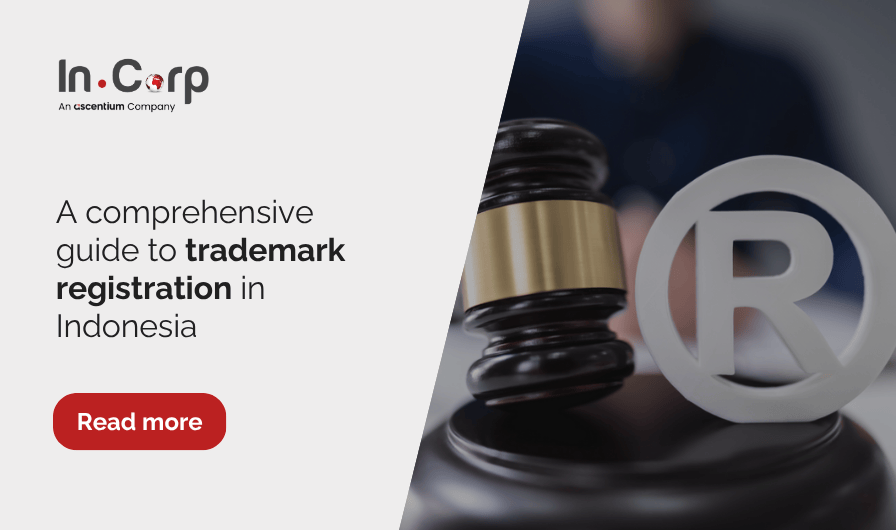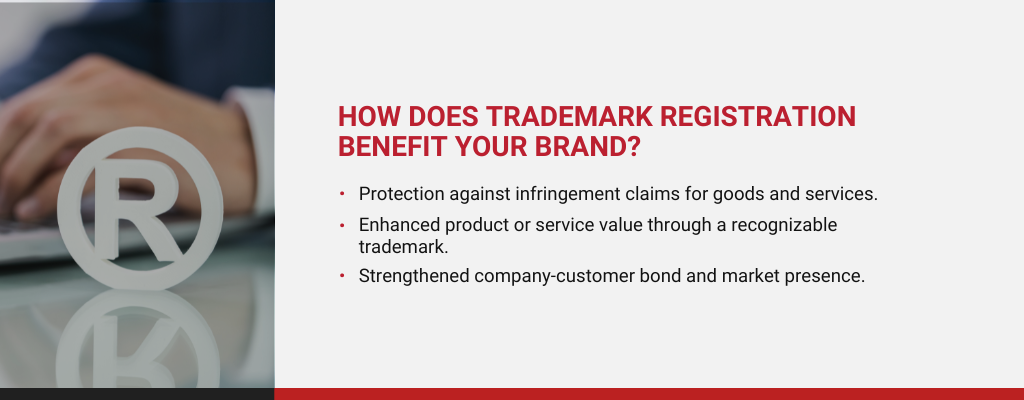In the dynamic business arena, securing a solid brand presence is crucial. To mitigate the risk, you may consider opting for trademark registration services in Indonesia. The services provided by a reputable provider in Indonesia can be a vital tool for protecting intellectual property.
In this article, we explore the essentials of trademark registration in Indonesia, guiding you through the process’s significance in this thriving market.
What is a trademark, and how is it used?
Trademark registration in Indonesia serves as a type of safeguard for intellectual property, setting apart a company’s offerings or services from those provided by others. This differentiation can be conveyed through visual representation.
There are two conditions for businesses to consider when registering a trademark in Indonesia: you must either be currently using the mark or have plans to use it soon.
Moreover, the trademark should remain in active use for at least three years to prevent potential cancellation due to non-use.
The importance of trademark registration in Indonesia
Based on Indonesia’s applicable law, registering a trademark is important for several reasons. Here is why:
1. First to file
Under #15 of the 2001 Trademark Act, Indonesia follows the first-to-file method. It means that the individual or organization that files for a specific trademark in Indonesia will be given priority for its use.
Why does this matter? It’s common for certain brands to build a strong reputation in their field but lose everything because they still need to register their trademark.
While you can dispute the usage of your company name or logo by another business, be prepared for a tough legal fight that might be challenging to win.
2. Exclusive protection
While registering a trademark doesn’t wholly prevent other businesses from copying or violating your intellectual property (IP), it can give you an advantage and boost your confidence.
Displaying the trademark or copyright logo also lowers the chances of other businesses taking your IP without permission.
3. Unified brand recognition
Indonesia has followed the Madrid System, a practical protocol of trademark registration, since January 2, 2018. This system allows companies to apply for a single trademark recognized by over 100 member countries.
It saves businesses time and money and enables broader international trade. Having your trademark in this system can help establish a consistent brand, making it easier for customers to identify you worldwide.
Read more: The halal industry: trends and future prospects in Indonesia
How does trademark registration benefit your brand?
Piracy is a significant concern in Indonesia, particularly when patenting goods and services. As a result, it’s crucial to register a trademark to protect a company’s goods and services, safeguarding them from potential infringement claims by others.
If the trademark owner encounters legal issues, the registration can also serve as a basis for seeking legal support. Moreover, a solid and recognizable trademark enhances the value of a company’s products or services.
The trademark helps establish a stronger bond between the company and its customers, ultimately contributing to a more solid market presence. In addition, in Indonesia, it’s possible to trademark various things like phrases, symbols, words, colors, and more.
The power of registering a trademark touches anything that sets a company’s products or services apart can be trademarked. However, the product or service must have been used in a business context before to get legal protection.
Trademark registration process in Indonesia
To successfully navigate the trademark registration process in Indonesia, it’s essential to comprehend the involved steps and their ramifications. Here’s an overview of the procedure:
1. Initial trademark research
Before submitting a trademark application, it is advisable to perform a comprehensive search to ensure the desired trademark is not already registered or used by someone else in Indonesia.
You can check the Indonesian Intellectual Property Office (DGIP) directory or consider enlisting a local trademark attorney for a more thorough search in the Indonesian trademark database.
2. Application submission to DGIP
You should apply the DGIP, including the trademark, the specific goods or services you intend to use it for, and the applicant’s name and address. Make sure the application is prepared correctly and contains accurate and complete information.
Some required documents are:
- Trademark application form that contains information about the trademark owner and contact information
- A clear representation of the trademark.
- A description of the goods/services used for the brand.
- Payment evidence of the trademark registration fee.
- A power of attorney if an agent or lawyer files the trademark.
- Copy of the priority application (if applicable).
Those documents should be in Indonesian; if you provide documents in a foreign language, you must translate and authenticate them in Indonesian.
3. Application assessment
Once you have submitted your application, the DGIP will review your trademark. At this point, the Indonesian trademark office will carefully examine your documents to ensure they meet all legal criteria regarding absolute and relative reasons for potential rejection.
If any concerns arise during this process, the DGIP might ask for more details or adjustments to the trademark application.
4. Approval and certificate issuance
Once the trademark application is accepted, it will be published in the DGIP’s Official Gazette. It allows others to raise concerns about trademark registration within a set timeframe. If someone objects, the applicant can address the fears and work towards a solution.
If there are no objections from other parties, the DGIP will provide a certificate confirming the trademark’s registration. This certificate remains valid for a decade and can be renewed for ten years each. Moreover, once you receive the trademark registration certificate, you can use the ® symbol as the visual protection for your trademark in Indonesia.
How important is trademark registration for your business?
Securing trademark registration for your business is beneficial. Companies can establish exclusive rights to use their brand name and logo, preventing unauthorized usage or imitation. This not only protects the company’s reputation. It also fosters customer trust but also streamlines the process of taking legal action against potential infringers.
Although the cost of trademark registration in Indonesia may fluctuate based on various factors, it is widely regarded as a cost-effective long-term investment. Furthermore, trademark registration can significantly enhance a company’s market value, rendering it more appealing to prospective investors and partners.
Secure your trademark with InCorp Indonesia
As concerns about piracy of products and services in Indonesia, trademark registration protects a company’s goods and services. It helps guard them against possible claims of unauthorized use by others.
To secure your trademark, InCorp Indonesia offers assistance in trademark registration that will guide your business through the end-to-end registration process to ensure your brand is legally protected in Indonesia.
Click the button below to connect with our consultants to safeguard your brand using our trademark registration services seamlessly.
Get in touch with us.
What you'll get
A prompt response to your inquiry
Knowledge for doing business from local experts
Ongoing support for your business
Disclaimer
The information is provided by PT. Cekindo Business International (“InCorp Indonesia/ we”) for general purpose only and we make no representations or warranties of any kind.
We do not act as an authorized government or non-government provider for official documents and services, which is issued by the Government of the Republic of Indonesia or its appointed officials. We do not promote any official government document or services of the Government of the Republic of Indonesia, including but not limited to, business identifiers, health and welfare assistance programs and benefits, unclaimed tax rebate, electronic travel visa and authorization, passports in this website.




